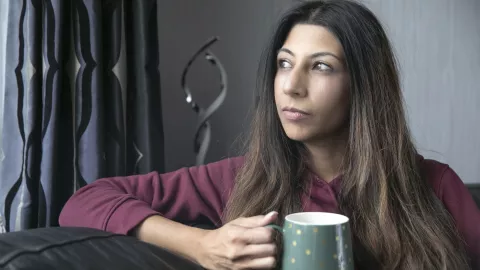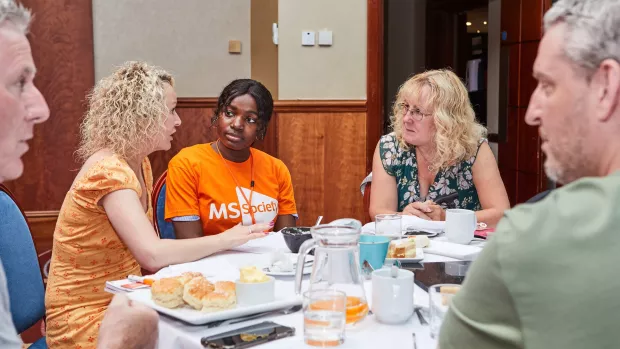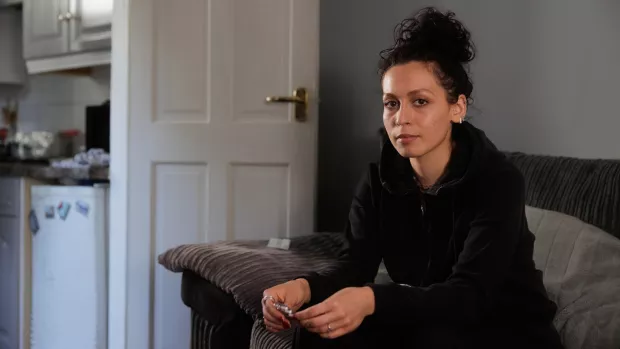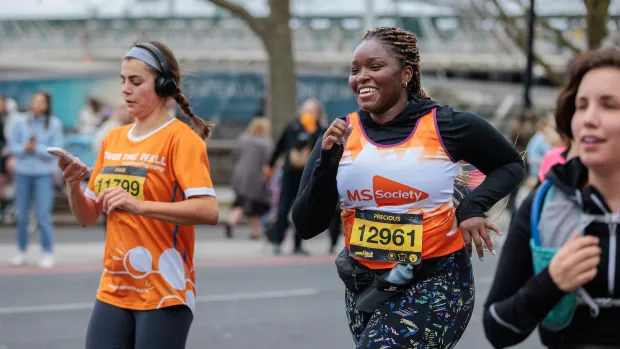
Telling your story - blogging for us
No one should have to face MS alone. And blogs, real stories from real people like you, can make all the difference. Here’s some notes and tips to help you get started.
Planning your blog
Community blogs are usually between 300 – 800 words long. We can work on them with you and are always happy to hear your ideas!
Blog topics
Our community bloggers write about everything MS. As long as it’s based on your personal experiences, we want to hear about it. Have a look on our community blogger page to see what people are talking about right now.
We also look for blogs on particular topics. For example, to link in with current affairs or our campaigns. At the moment we’re keen to read your blogs on:
- how MS makes you feel, act or think. This MS Week we're asking people to complete the sentence #MSMakesMe...
- how you were diagnosed with MS, what were the signs that led you to look for help?
- using our services, like our MS Helpline, or webinars
- being diagnosed with Clinically Isolated Syndrome (CIS)
- the hidden effects of MS – how symptoms like fatigue, pain and mental health problems affect us, though they aren’t visible to the naked eye
- work and MS – whether that’s in an office, at home, transitioning back to work or leaving work altogether
- how having MS affects you culturally, is it taboo in your community, do you face extra challenges because of your heritage?
- getting creative, your hobbies.
Things to think about in planning
We find blogs or vlogs that describe real-life events in your life resonate best with our community.
- What’s your main theme or topic? Try to focus on a short, defined period of your life or a single issue for example:
- Describe particular moments or events and how they made you feel. Sometimes little moments help readers understand your perspective and ‘get you’.
- Have you come on a journey? How were things for you at the start of your story, compared to how they are now? Do you feel you’ve changed at all because of what happened?
- Do you have any tips or advice you’d like to share? What would you say to someone going through a similar experience?
- What pictures do you want to use to illustrate your blog? Bright, positive high resolution photographs can help bring your words to life.
Writing your blog
Style
Informal and conversational style blogs work best. We also follow the plain English guide for accessible writing, particularly as it helps people with MS symptoms like optic neuritis and cognitive fog. Here are some tips:
- Write as if you’re talking to someone. Picture who you’d like to tell your story to and imagine telling it to them in person as you write.
- Be yourself. Let your personality come through in your writing (writing as if you’re talking will help with this).
- Use short words instead of long words where possible, for example ‘try’ for ‘endeavour’.
- Use short sentences (no more than 18 - 20 words average) and short paragraphs (stick to one or two ideas in each paragraph).
Structure and editing
Think about your opening sentence. What can you say that will grab your reader’s attention and get them interested straight away? This doesn’t mean you need to say something shocking, it could be something simple and honest.
- Think about the events in your story and build your blog around them. Stay focused and keep it simple to make it easy for your reader to understand what’s going on.
- Community blogs are usually around 300 – 800 words. So once you’ve said everything you want to say, it’s time to think about length. The first thing to do is check and cut out anywhere you’re repeating yourself. Then make sure that everything you’ve included is adding to your story, not distracting from the points you’re trying to make.
- Add subheadings to structure and break up your text.
- Once you’ve finished, try to read through your blog as if you were one of your readers. Or better still ask a friend to do it. Does it make sense to them? Most writers say editing their story is the most difficult, but also the most useful, part of the process. We can help you with it, so don’t worry!
Sending us your ideas and blogs
Send your blogs and blog ideas to [email protected]. We’d love to hear from you.
The small print
Copyright
Your blog post must not be under review or published with another blog or print publisher. If you already blog, you’re welcome to write something on a similar theme to a previous blog post, but your piece should be original.
Publishing
We’ll try to include your blog post but can’t guarantee to use everything we’re sent.
Editing
We may make small edits to your writing to optimise it for digital publishing. We’ll send any major changes for your approval before we publish anything.



